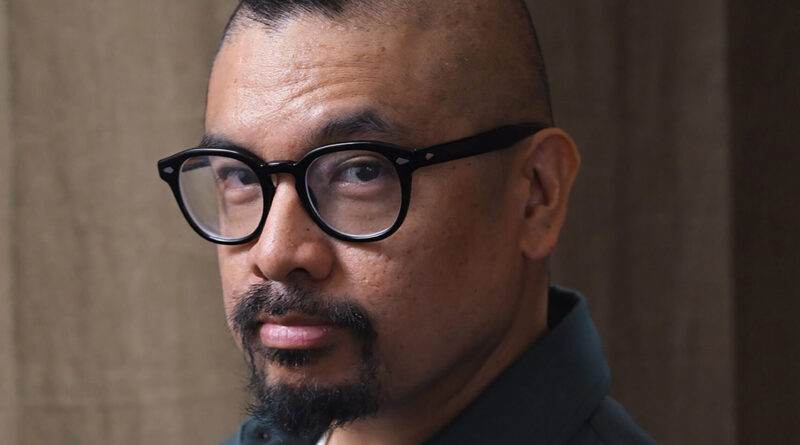H.P. Mendoza’s Flights of Imagination in Asian American Cinema
By Anthony Yooshin Kim
In a cinematic landscape dominated by blockbusters and franchise juggernauts, H.P. Mendoza has always stood out as a proud iconoclast. His latest feature, The Secret Art of Human Flight, showcases his ability to transport audiences to places that exist just beyond the horizon of what is possible, a delicate balance of intimate storytelling and innovative filmmaking. While the film industry has always been motivated by profit margins and mass appeal, Mendoza’s oeuvre presents a compelling challenge: with Asian American cinema moving towards the mainstream, how does one preserve the integrity of their art?
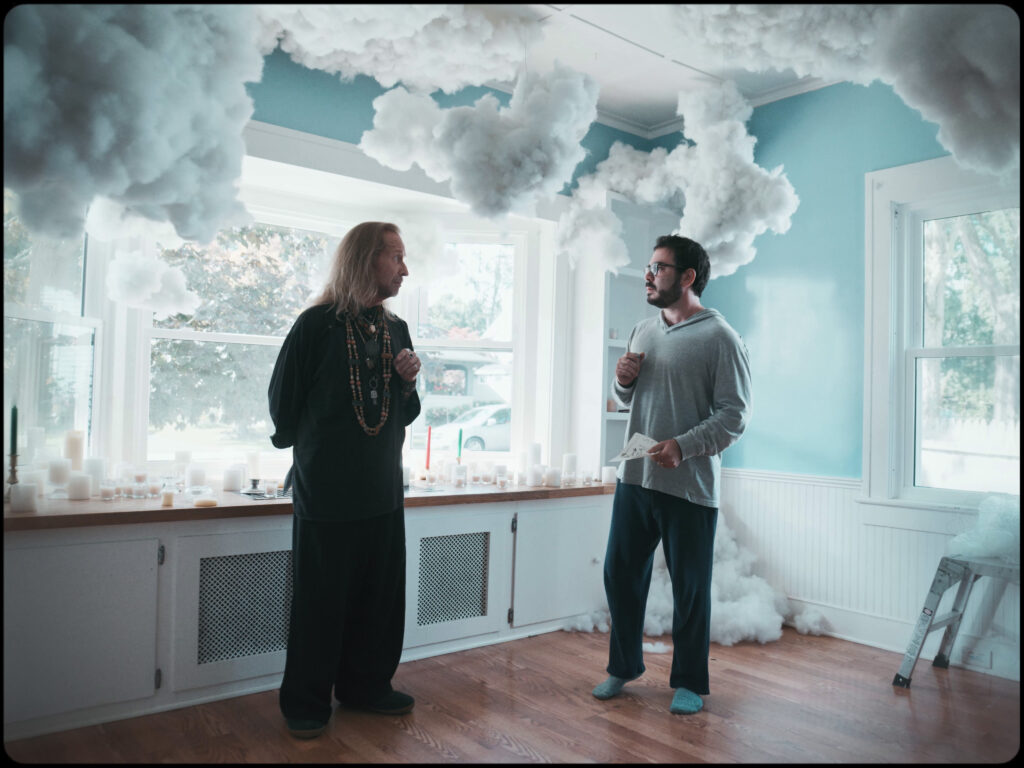
Dubbed “San Francisco’s Queer cinema poet” by the Bay Area Reporter, Mendoza’s reputation precedes him. It’s a moniker that hints at his unique talent in unearthing beauty in nuances, the puckish devil in the details – a talent evident in his extensive portfolio. He first rose to prominence with his multifaceted contributions as a screenwriter, composer, and actor on the spirited micro-budget masterpiece Colma: The Musical (2007) and its follow-up, Fruit Fly (2010). His journey continued with wide-ranging output like I Am a Ghost (2014), a fusion of arthouse sensibilities with domestic horror, and Bitter Melon (2018), a pitch-black comedy about a dysfunctional Filipino American family. Inspired by the dreamlike approaches of filmmakers such as Jacques Demy, Mendoza has carved a distinctive voice in cinema. His works not only echo fanciful explorations of form and genre but also center characters otherwise pushed to the periphery of predominantly white, heterosexual narratives.
This November, as the San Diego Asian Film Festival enters its 24th year, Mendoza’s artistry will once again be on display, resonating with an audience eager for authenticity. What started as a modest local event has transformed into an influential hub for Asian American and Pacific Islander narratives. Orchestrated by the Pacific Arts Movement, the festival showcases a myriad of cinematic experiences—from groundbreaking indie films and incisive documentaries to the influential works of established Asian cinema talents, all while amplifying the fresh voices of Asian American and Pacific Islander filmmakers.
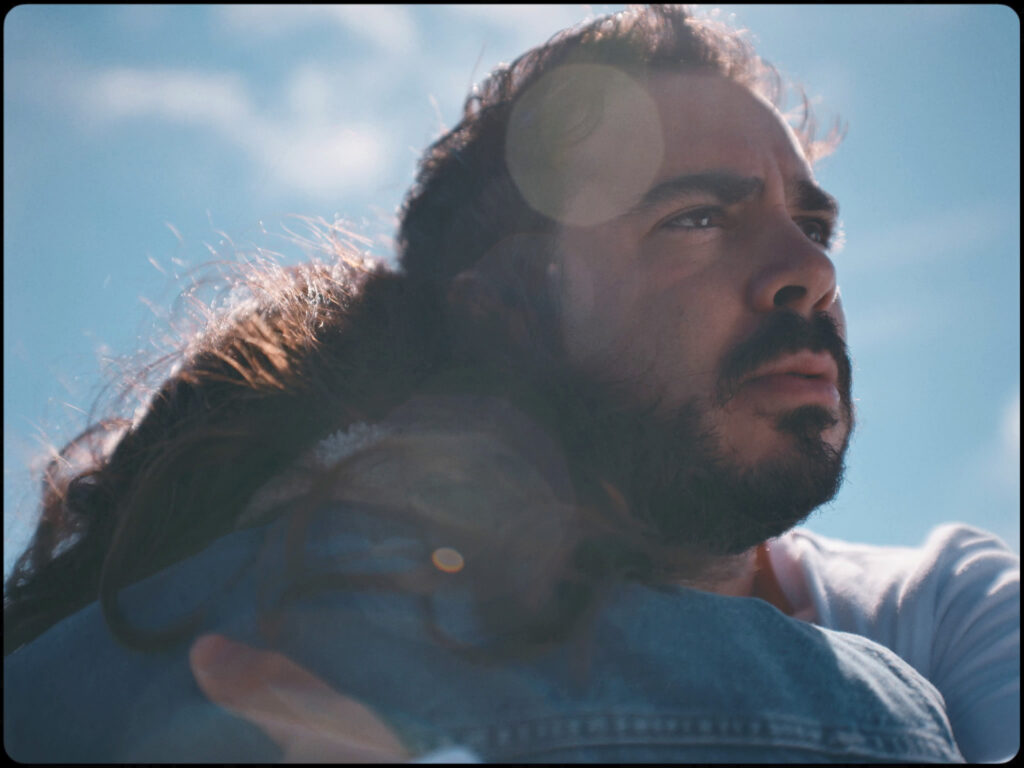
Asian American cinema’s emergence mirrors the community’s broader historical narrative. From the early filmmakers in the 1970s and 1980s who navigated pervasive stereotypes, to the nuanced sociocultural tales of the new millennium, the cultural milieu of Asian American cinema has evolved.
One can certainly say Mendoza’s career trajectory shadows the strivings of Asian American cinema over the past two decades. Prioritizing stories from and for their communities, he and his contemporaries (and longtime collaborators like Richard Wong) favored the idiosyncrasies of their perspectives over mainstream appeal, giving themselves permission to take up space from the margins and just be unapologetically weird. This ethos, valuing a do-it-yourself (DIY) authenticity and genuine storytelling over polished, commercialized assimilation, can be traced back to pioneering Asian American films.
Debuting at this year’s Tribeca Film Festival, The Secret Art of Human Flight embodies the mature refinement of Mendoza’s craft and vision. This film isn’t just a tale of grief and healing; it’s painted with vibrant strokes of fantasy, caprice, and surrealism. Central to the narrative is Ben’s (Grant Rosenmeyer) quest for solace after losing his wife, Sarah (Reina Hardesty). A mysterious self-help book on human flight from the Dark Web leads him to the enigmatic spiritual mentor, Mealworm (Paul Raci). As Ben plunges further into these unorthodox teachings, his world teeters on the edge of reality and illusion.
Mendoza’s relentlessly inventive approach to filmmaking is apparent in the very format of the film itself. The Secret Art of Human Flight is presented with a round-cornered 4:3 aspect ratio–a hallmark of 35mm celluloid film–that is intermittently interrupted by an assortment of other videos that are stitched together in a way that might strike some as unwieldy. Yet this unusual choice mirrors Ben’s quest for clarity and enlightenment. The questions arise: How do we document our lives today, and how does that affect our understanding of ourselves and each other? Where do our videos end, and our memories begin?
Through an interweaving of screens, from digital to film, from phones to televisions to TikTok, Mendoza artfully blurs the line between the act of living and the art of documenting that characterizes our modern lives. He invites audiences to ponder the impact of technology on our memories, our connections, and our quest for meaning in a digital age. But beyond technological musings, Mendoza’s films also delve deep into cultural narratives.
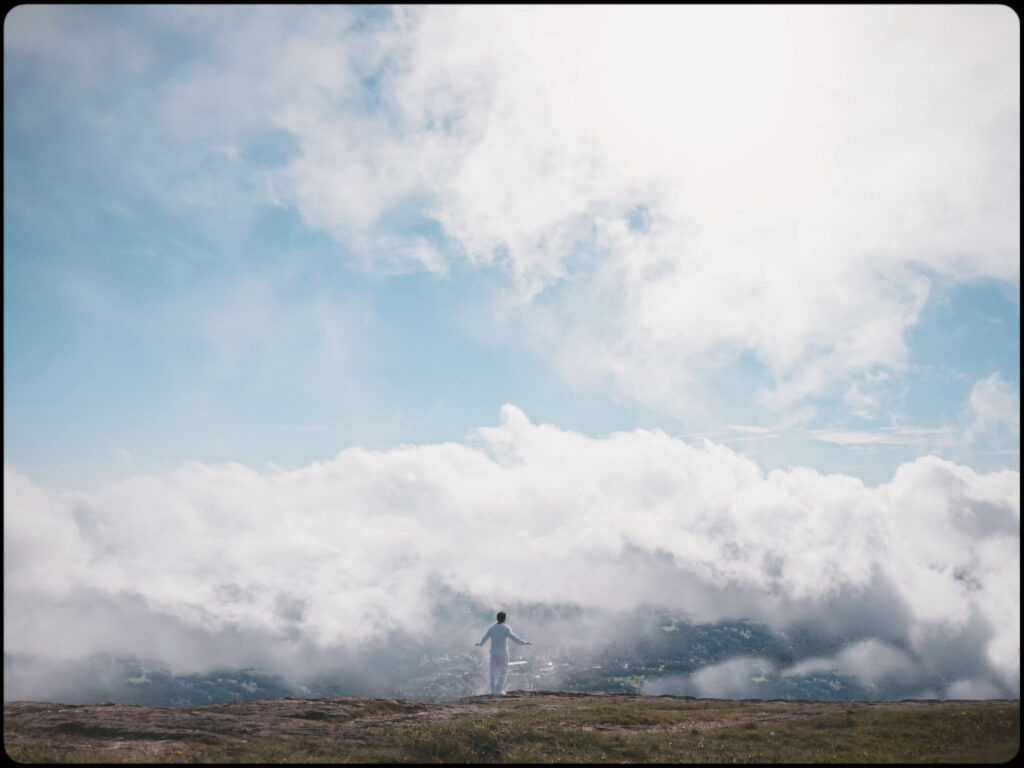
While The Secret Art of Flight might not fit the traditional mold of an “Asian American film,” it stands as a testament to a filmmaker skilled at navigating the intricate maze of identity politics. Within the narrative, identity is not prominently announced nor used as a self-conscious trope. Instead, it’s subtly integrated, much like a familiar piece of furniture in one’s living room, developing characters with the gift of complex inner lives.
A poignant example of this in the film is the recollection of a vintage mechanical eraser from Kyoto, a cherished family heirloom once owned by Sarah’s grandfather. Unlike most who would use an eraser to simply correct mistakes, Sarah employed it as a tool for transformation, turning perceived flaws into art. This subtle yet profound act encapsulates a larger philosophy. Just as Sarah sees potential in errors, Mendoza approaches cinema in a similar vein. Instead of adhering strictly to established cinematic norms, he embraces the unexpected, transforming potential narrative and visual ‘mistakes’ into innovative storytelling moments that connect deeply with audiences.
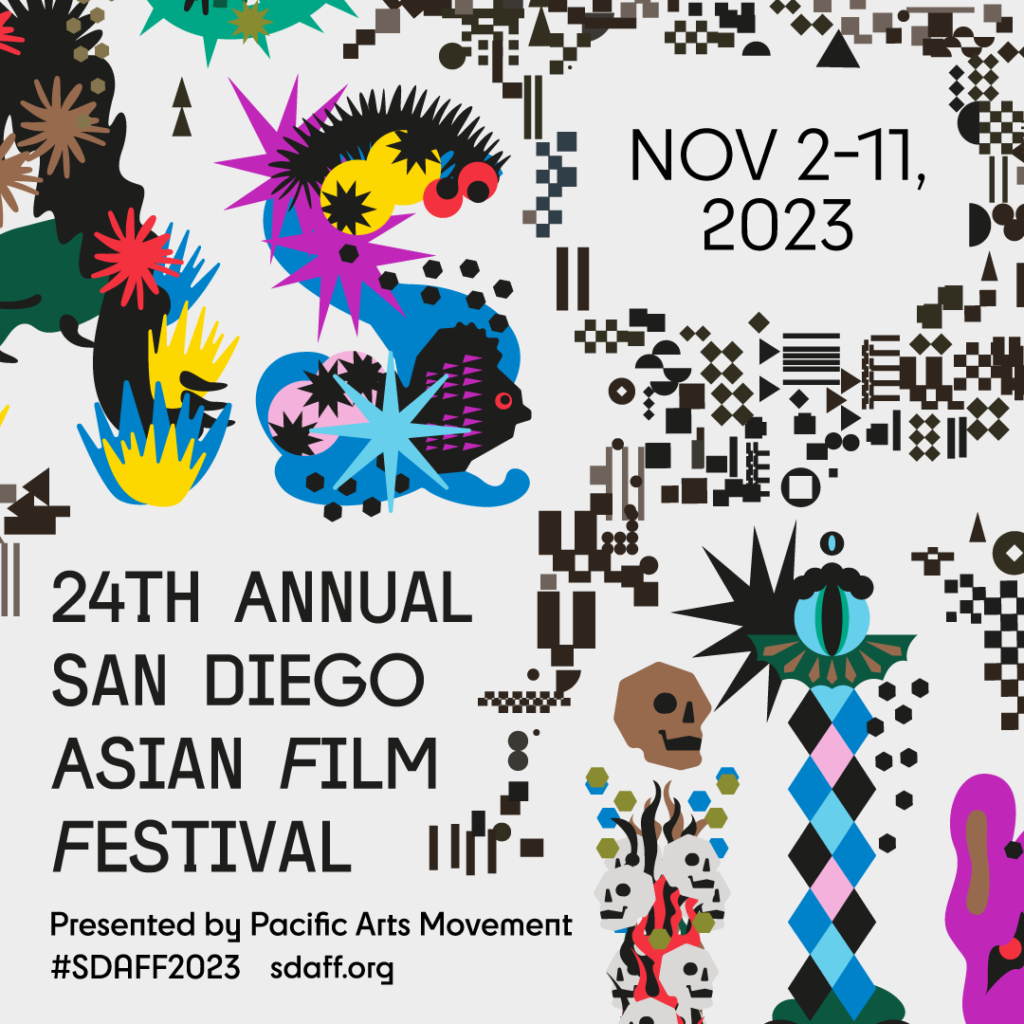
Beyond Mendoza, the San Diego Asian Film Festival has been instrumental in spotlighting myriad Asian American voices, providing them a platform to share tales that span genres, defy expectations, and appeal to growing audiences. The festival supports Asian American cinema’s evolution, celebrating filmmakers who’ve boldly chosen authenticity over conformity. As attendees explore its rich offerings, The Secret Art of Human Flight serves as a narrative bridge, linking past endeavors with future aspirations, epitomizing the continuous evolution of Asian American cinema. With Mendoza’s work as one cornerstone, the festival not only offers a reflective cinematic experience but also looks ahead, eagerly anticipating the captivating tales yet to unfold.
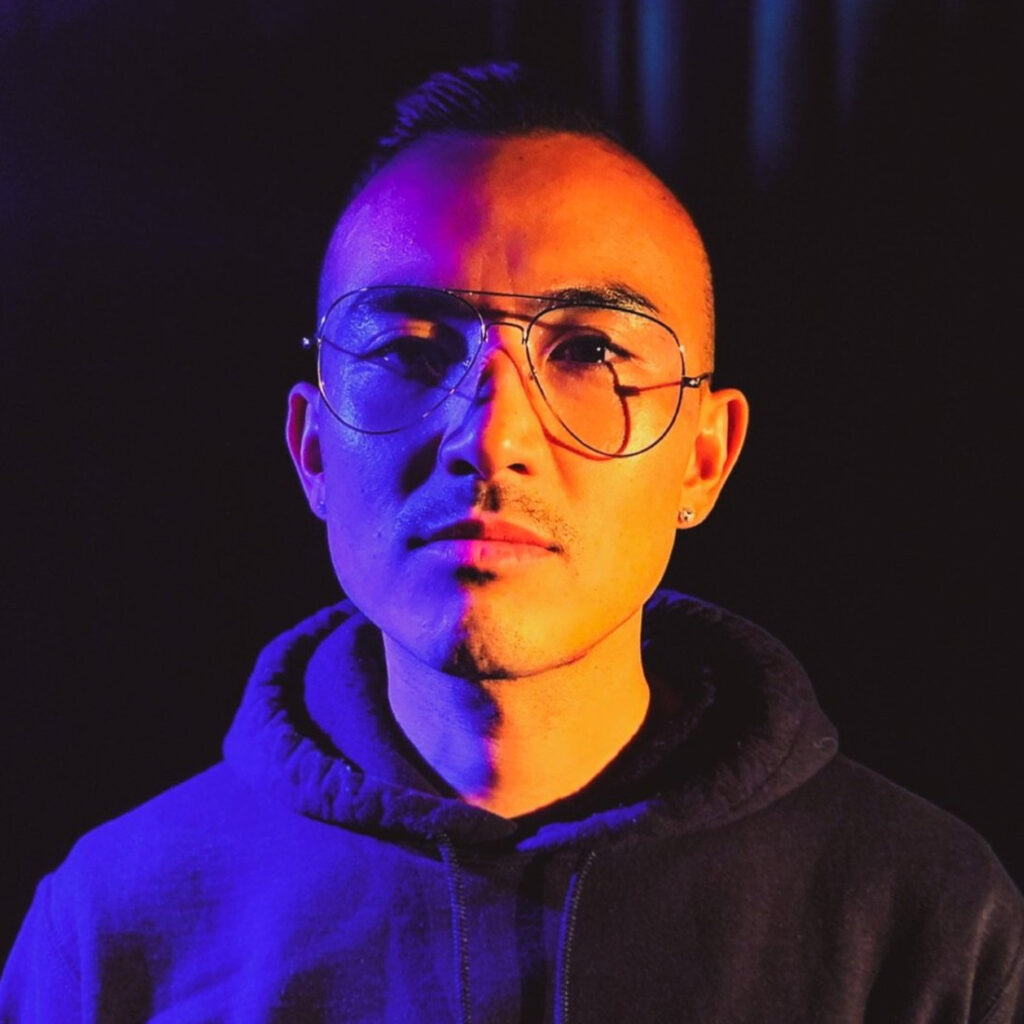
About Authors:
Anthony Yooshin Kim is a Digital Curator at American Documentary, the producer of the award-winning nonfiction film series ‘POV’ and ‘America ReFramed’.

